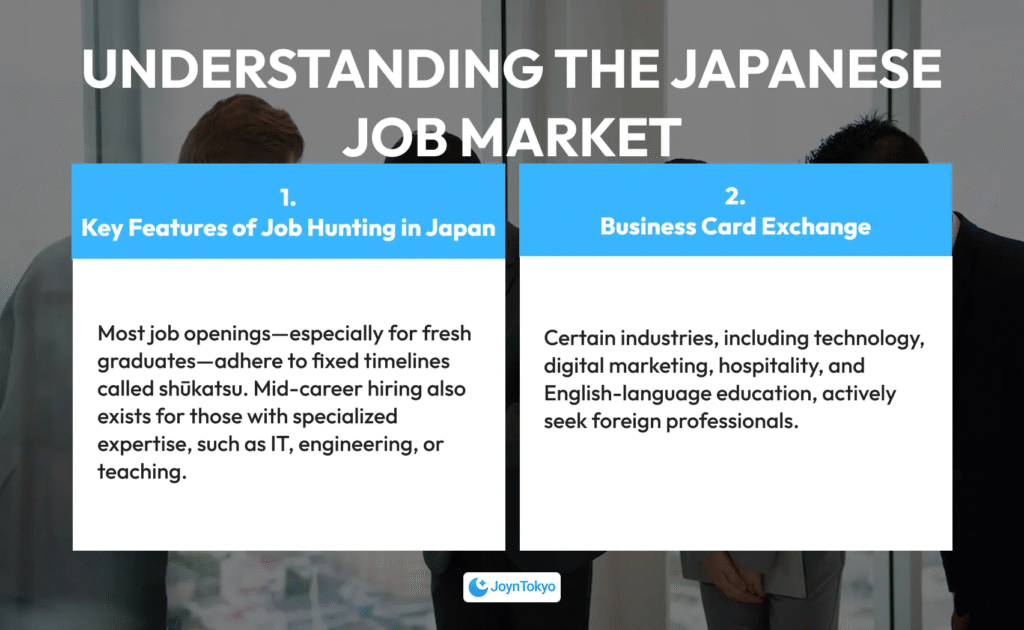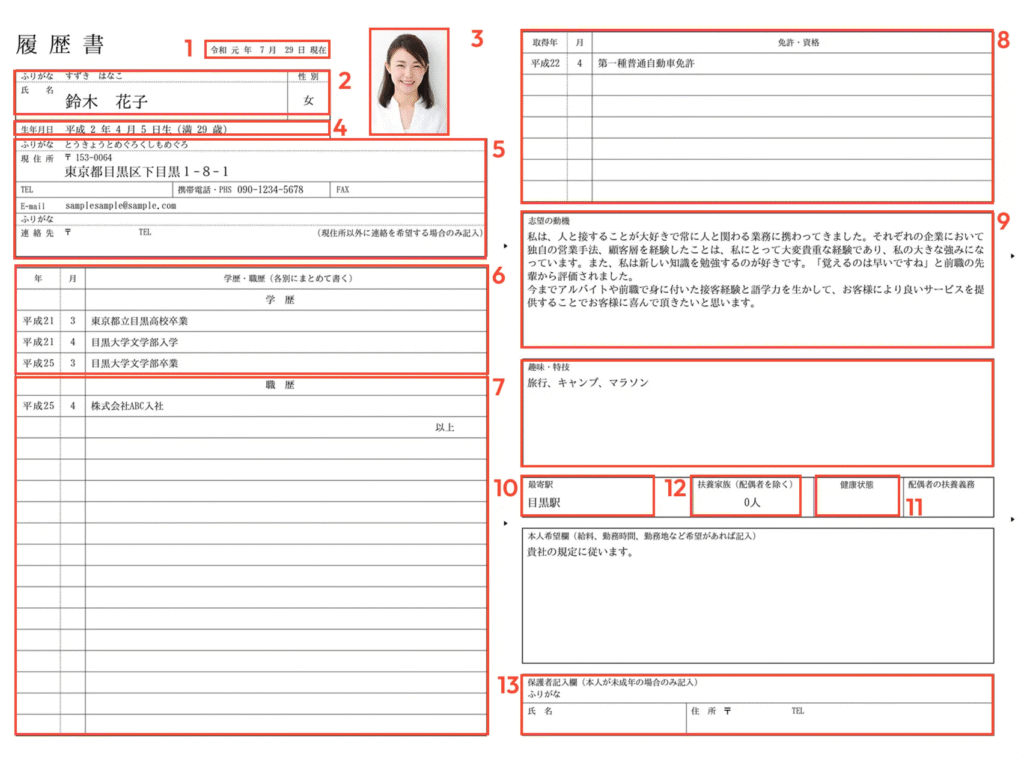Many foreigners are drawn to Japan for its unique culture, cutting-edge technology, and abundant career opportunities. Although the job market follows certain formalities, international candidates who understand local customs and application processes can secure fulfilling positions. This article provides practical insights on how to navigate the Japanese job market, craft impressive application materials, and adapt to workplace norms.
Understanding the Japanese Job Market

Japan’s employment culture places a strong emphasis on long-term commitment, structured recruitment, and mutual respect. Knowing these foundational elements will help foreign professionals position themselves for success.
Key Features of Job Hunting in Japan
Most job openings—especially for fresh graduates—adhere to fixed timelines called shūkatsu. Mid-career hiring also exists for those with specialized expertise, such as IT, engineering, or teaching. Demonstrating adaptability, language skills, and unique perspectives can give foreign applicants a distinct advantage.
Industry Demand for Foreigners
Certain industries, including technology, digital marketing, hospitality, and English-language education, actively seek foreign professionals. Japanese firms aiming to expand globally value multilingual employees who can connect with overseas clients. Smaller companies may also welcome international hires to introduce fresh perspectives and bridge cultural gaps.
Effective Job Search Strategies
Job hunting in Japan involves a combination of online research, networking, and familiarity with local hiring practices. Below are several proven methods for increasing your chances of landing the right role.
Online Platforms and Websites for Foreigners

- GaijinPot Jobs (blog.gaijinpot.com/how-to-find-a-job-in-japan-2025-definitive-guide/) Known for listing diverse positions—from teaching to IT—GaijinPot offers guides on visa procedures and cultural tips.
- JobsinJapan.com (jobsinjapan.com) Caters specifically to foreigners, clearly indicating Japanese language requirements for each position.
- Daijob (daijob.com) Focuses on bilingual professionals, popular for mid-career or specialized roles.
- TokyoDev (tokyodev.com) Targets software engineers and web developers, featuring insights on Japan’s startup scene.
- LinkedIn (linkedin.com) Though not Japan-specific, LinkedIn is widely used by global companies in major Japanese cities.
Additionally, consider government-run resources like Hello Work, an employment service operated by Japan’s Ministry of Health, Labour and Welfare. While much of the interface is in Japanese, some offices and webpages have English support.
Networking Events and Career Fairs
In-person events remain an effective way to meet recruiters and gain firsthand insights into company culture. Local and international chambers of commerce often host networking sessions, and large cities like Tokyo and Osaka regularly hold job fairs specifically for foreign professionals. If you are a student or recent graduate living overseas, consider the Boston Career Forum, an annual event where Japanese firms recruit globally.
University Programs and Alumni Connections
For students or alumni of Japanese universities, career centers often provide résumé reviews and mock interviews tailored to local standards. Alumni networks can reveal hidden opportunities and offer advice on managing language barriers and cultural expectations.
Crafting Your Application Materials
Once you identify potential roles, success largely depends on how well your application documents align with Japanese conventions.
The Japanese-Style Resume (Rirekisho)

The rirekisho is a concise, standardized form detailing personal information, academic background, and employment history. While many companies accept typed versions, some still prefer handwritten resumes. Be meticulous: small errors can detract from your credibility, so ensure dates and qualifications match Japanese formats.
The Shokumu Keirekisho
Beyond the basic rirekisho, employers often require a more detailed personal statement called the shokumu keirekisho. Use it to emphasize your professional achievements, core skills, and adaptability to Japanese workplace norms. Show how your international background can contribute to the company’s growth.
Navigating the Interview Process
Interviews in Japan can involve multiple rounds, each evaluating not only your technical skills but also your potential fit within the team.
Interview Etiquette and Formality
Timeliness is crucial—arrive at least ten minutes early. Greet interviewers with a respectful bow and be ready to shake hands if they initiate. Dress conservatively in business attire unless told otherwise. Throughout the interview, maintain polite, calm communication.
Common Questions and Cultural Nuances
Expect questions on your motivations for working in Japan, language proficiency, and approaches to teamwork. Offer concise examples that demonstrate both expertise and cultural understanding. Displaying respect, loyalty, and eagerness to integrate into Japanese society can significantly boost your appeal.
Visa and Cultural Considerations
Landing a job is only part of the journey. Ensuring proper documentation and adapting to day-to-day life in Japan are vital for a smooth transition.
Work Visa and Documentation
The type of work visa you need depends on your role and qualifications. Most companies sponsor the visa, but you’ll typically need transcripts, recommendation letters, and other official documents. Start collecting these materials early; processing can take several weeks or more. For detailed information, consult the Immigration Services Agency of Japan website.
Language Proficiency and Ongoing Learning
While some positions are English-based, improving your Japanese can open additional doors. Learning basic phrases for daily interactions shows genuine commitment to local integration. Continuous study also helps you navigate challenges in both professional and personal contexts.
Navigating Cultural Differences
Japanese workplace culture values harmony, politeness, and consensus-building. Respectful gestures—like bowing and exchanging business cards with both hands—set the right tone. Many companies offer cultural training for new hires, which is especially helpful for foreign employees adjusting to local norms.
Looking Ahead: Making the Most of Your Japanese Career Journey
Finding a job in Japan requires preparation, adaptability, and persistence. By leveraging reputable websites, attending networking events, and submitting well-structured application documents, you’ll stand out in a competitive market. Once you begin work, improving your language skills and deepening your cultural understanding will enrich both your career and your daily life. Approach each step with curiosity and diligence, and you’ll be well on your way to thriving professionally and personally in Japan.


